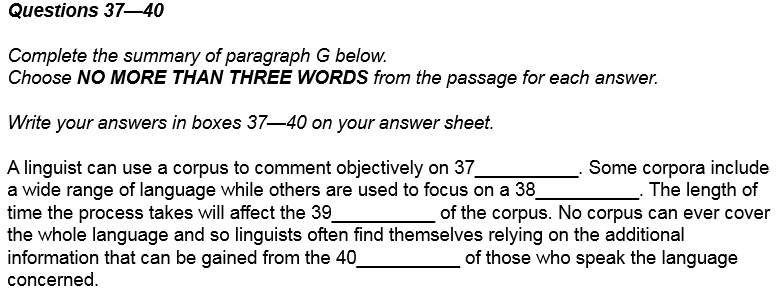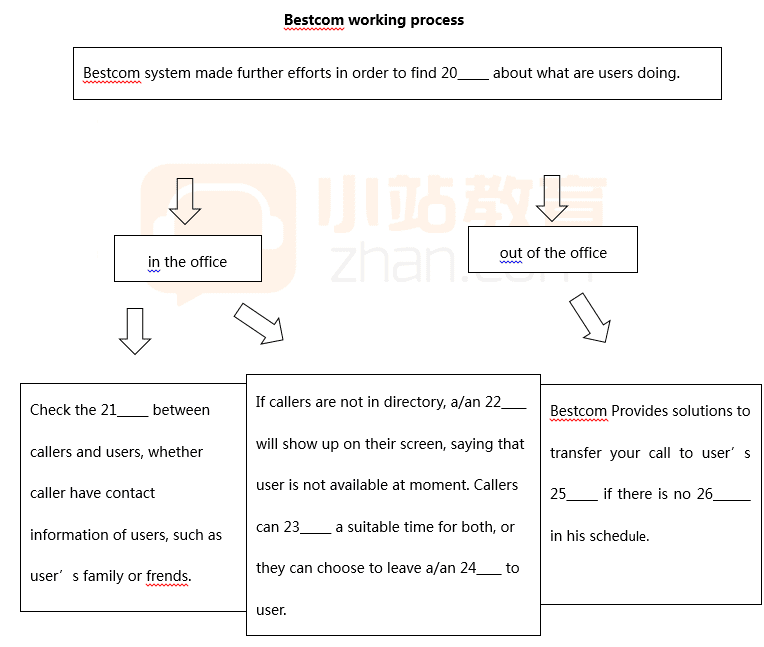托福阅读的高分关键在于单词基础和真题练习,今天小编给大家带来托福阅读满分经验分享:词汇和做题两手抓,下面小编就和大家分享,来欣赏一下吧。
托福阅读满分经验分享:词汇和做题两手抓
首先最重要的就是单词,单词作为看懂阅读文章最基本的条件可以说是十分重要的了。所以在我的备考过程中,我首先把那本绿色的新东方乱序单词书反复背了三遍,所以在此基础上便可以看懂任意托福阅读中90%的单词。而剩余10%的词(专有词汇、生僻词汇)则需要自己从阅读材料中摘抄了(参考通才教育托福词汇书)。当你单词这一步做的足够扎实,看英语的文章就和看中文无差别了。那么如何衡量自己的词汇量是否满足托福所要求的水平呢?我认为随便挑一篇官方真题Official,不认识或代入句子不知道如何翻译的单词全篇加起来不超过10个就基本满足了。
当词汇量达到了一定的水平,接下来就是做题了。所以这一步是基于看懂文章的前提下的,总结一下托福阅读题无非就几个类型,我们可以分别讨论:
1. 单词题:其实我本人最拿不准的是这种题,很大一部分的原因我觉得是没怎么好好背高中四级六级的单词。我的准备是见到一个不会的单词解释题就抄写下来并在考试前记忆这些不会的题,最后再把所有官方真题Official的单词解释题过一遍。
2. 选是/非题:这一题可以说是在所有里面最简单的了,因为只要你看懂文章并且基于原文,运用正推反推来选择答案一般都不会有什么问题。保证这类题的正确率需要养成一个好的解题习惯,通过不断做题并总结出题规律。只要找到了规律任何这类题都不会有太大的问题。
3.作者意图题:这一题需要结合所在段落的结构分配。比如大部分阅读文章都是先提出一个观点,然后引出一个专有名词问你其出现的意义。根据论点论据的关系,很大可能就是通过举例支撑前面的观点。当然这也是具体问题具体分析,只要你见得题多了,大部分都是万变不离其宗。
4.划线题:这题纯粹考察语法知识。完成这题需熟悉各类语法,理清了句子成分再用排除法就可得出答案。
5.插入题:这类题相对较容易,找句子中的关键词再分别代入默念一遍通顺合理即可。
6. 6选3题:做对这一题的前提是看完所有的段落并理解每个细节和整体脉络。我一般都是采用排除法,常见误导项包括:偷换概念、强调细节、细节出错和因果关系有误。
托福阅读真题原题+题目
In 1972, a century after the first national park in the United States was established at Yellowstone, legislation was passed to create the National Marine Sanctuaries Program. The intent of this legislation was to provide protection to selected coastal habitats similar to that existing for land areas designated as national parks. The designation of an area's marine sanctuary indicates that it is a protected area, just as a national park is. People are permitted to visit and observe there, but living organisms and their environments may not be harmed or removed.
The National Marine Sanctuaries Program is administered by the National Oceanic and Atmospheric Administration, a branch of the United States Department of Commerce. Initially, 70 sites were proposed as candidates for sanctuary status. Two and a half decades later, only fifteen sanctuaries had been designated, with half of these established after 1978. They range in size from the very small (less than 1 square kilometer) Fagatele Bay National Marine Sanctuary in American Samoa to the Monterey Bay National Marine Sanctuary in California, extending over 15,744 square kilometers.
The National Marine Sanctuaries Program is a crucial part of new management practices in which whole communities of species, and not just individual species, are offered some degree of protection from habitat degradation and overexploitation. Only in this way can a reasonable degree of marine species diversity be maintained in a setting that also maintains the natural interrelationships that exist among these species.
Several other types of marine protected areas exist in the United States and other countries. The National Estuarine Research Reserve System, managed by the United States government, includes 23 designated and protected estuaries. Outside the United States, marine protected-area programs exist as marine parks, reserves, and preserves. Over 100 designated areas exist around the periphery of the Caribbean Sea. Others range from the well-known Australian Great Barrier Reef Marine Park to lesser-known parks in countries such as Thailand and Indonesia, where tourism is placing growing pressures on fragile coral reef systems. As state, national, and international agencies come to recognize the importance of conserving marine biodiversity, marine projected areas. whether as sanctuaries, parks, or estuarine reserves, will play an increasingly important role in preserving that diversity.
1. What does the passage mainly discuss?
(A) Differences among marine parks, sanctuaries, and reserves
(B) Various marine conservation programs
(C) International agreements on coastal protection
(D) Similarities between land and sea protected environments
2. The word intent in line 3 is closest in meaning to
(A) repetition
(B) approval
(C) goal
(D) revision
3. The word administered in line 8 is closest in meaning to
(A) managed
(B) recognized
(C) opposed
(D) justified
4. The word these in line 11 refers to
(A) sites
(B) candidates
(C) decades
(D) sanctuaries
5. The passage mentions the Monterey Bay National Marine Sanctuary (lines 13-14) as an
example of a sanctuary that
(A) is not well know
(B) covers a large area
(C) is smaller than the Fagatele Bay National Marine Sanctuary
(D) was not originally proposed for sanctuary status
6. According to the passage , when was the National Marine Sanctuaries Program established?
(A) before 1972
(B) after 1987
(C) one hundred years before national parks were established
(D) one hundred years after Yellowstone National Park was established
7. According to the passage , all of the following are achievements of the National Marine
Sanctuaries Program EXCEPT
(A) the discovery of several new marine organisms
(B) the preservation of connections between individual marine species
(C) the protection of coastal habitats
(D) the establishment of areas where the public can observe marine life
8. The word periphery in line 24 is closest in meaning to
(A) depth
(B) landmass
(C) warm habitat
(D) outer edge
9. The passage mentions which of the following as a threat to marine areas outside the United
States?
(A) limitations in financial support
(B) the use of marine species as food
(C) variability of the climate
(D) increases in tourism
PASSAGE 51 BCADB DADD
托福阅读真题原题+题目
In the early 1800's, over 80 percent of the United States labor force was engaged in agriculture. Sophisticated technology and machinery were virtually nonexistent. People who lived in the cities and were not directly involved in trade often participated in small cottage industries making handcrafted goods. Others cured meats, ran bakeries, or otherwise produced needed goods and commodities. Blacksmiths, silversmiths, candle makers, and other artisans worked in their homes or barns, relying on help of family members or apprentices.
Perhaps no single phenomenon brought more widespread and lasting change to the United States society than the rise of industrialization. Industrial growth hinged on several economic factors. First, industry requires an abundance of natural resources, especially coal, iron ore, water, petroleum, and timber — all readily available on the North American continent. Second, factories demand a large labor supply. Between the 1870's and the First World War (1914-1918), approximately 23 million immigrants streamed to the United States, settled in cities, and went to work in factories and mines. They also helped build the vast network of canals and railroads that crisscrossed the continent and linked important trade centers essential to industrial growth.
Factories also offered a reprieve from the backbreaking work and financial unpredictability associated with farming. Many adults, poor and disillusioned with farm life, were lured to the cities by promises of steady employment, regular paychecks, increased access to goods and services, and expanded social opportunities. Others were pushed there when new technologies made their labor cheap or expendable; inventions such as steel plows and mechanized harvesters allowed one farmhand to perform work that previously had required several, thus making farming capital-intensive rather than labor-intensive.
The United States economy underwent a massive transition and the nature of work was permanently altered. Whereas cottage industries relied on a few highly skilled craft workers who slowly and carefully converted raw materials into finished products from start to finish, factories relied on specialization. While factory work was less creative and more monotonous, it was also more efficient and allowed mass production of goods at less expense.
1. What aspect of life in the United States does the passage mainly discuss?
(A) The transition from an agricultural to an industrial economy
(B) The inventions that transformed life in the nineteenth century
(C) The problems associated with the earliest factories
(D) The difficulty of farm life in the nineteenth century
2. Blacksmiths, silversmiths, and candle makers are mentioned in lines 5-6 as examples of artisans who
(A) maintained their businesses at home
(B) were eventually able to use sophisticated technology
(C) produced unusual goods and commodities
(D) would employ only family members
3. The phrase hinged on in line 9 is closest in meaning to
(A) recovered from
(B) depended on
(C) started on
(D) contributed to
4. Which of the following is mentioned in the passage as a reason for the industrial growth that
occurred in the United States before 1914?
(A) The availability of natural resources found only in the United States
(B) The decrease in number of farms resulting from technological advances
(C) The replacement of canals and railroads by other forms of transportation
(D) The availability of a large immigrant work force
5. The word lured in line 19 is closest in meaning to
(A) attracted
(B) assigned
(C) restricted
(D) attached
6. The word Others in line 20 refers to other
(A) adults
(B) promises
(C) goods and services
(D) social opportunities
7. The word expendable in line 21 is closest in meaning to
(A) nonproductive
(B) unacceptable
(C) nonessential
(D) unprofitable
8. It can be inferred from the passage that industrialization affected farming in that
industrialization
(A) increased the price of farm products
(B) limited the need for new farm machinery
(C) created new and interesting jobs on farms
(D) reduced the number of people willing to do farm work
9. What does the author mean when stating that certain inventions made farming
capital-intensive rather than labor-intensive (lines 23-24)?
(A) Workers had to be trained to operate the new machines.
(B) Mechanized farming required more capital and fewer laborers.
(C) The new inventions were not helpful for all farming activities.
(D) Human labor could still accomplish as much work as the first machines.
10. According to the passage , factory workers differed from craft workers in that factory workers
(A) were required to be more creative
(B) worked extensively with raw materials
(C) changed jobs frequently
(D) specialized in one aspect of the finished product only
PASSAGE 52 AABDA ADDBD









 扫一扫支付
扫一扫支付


